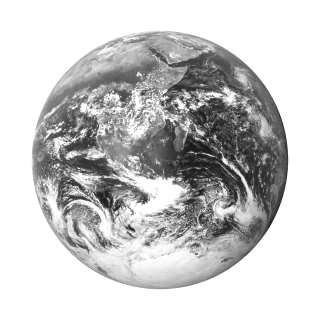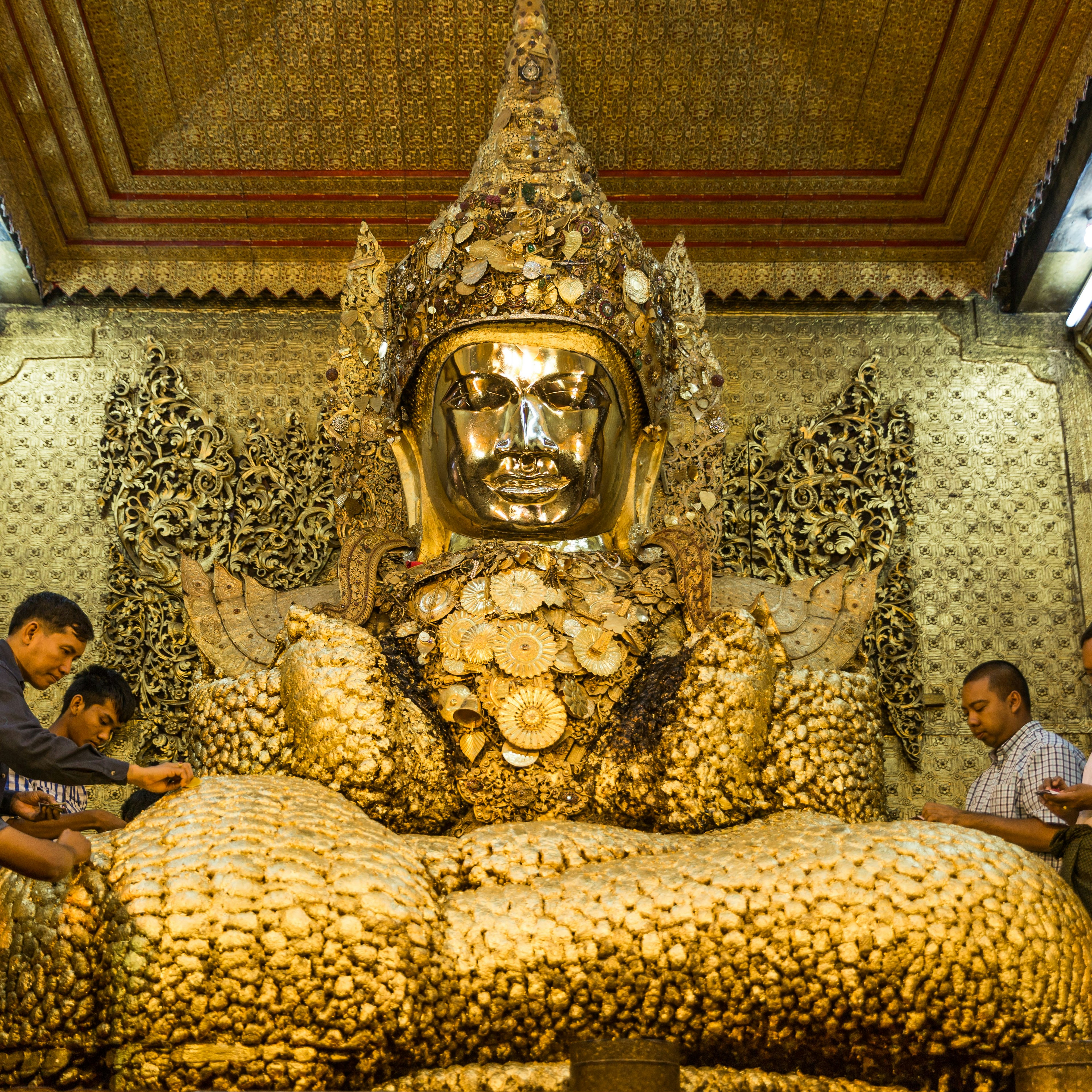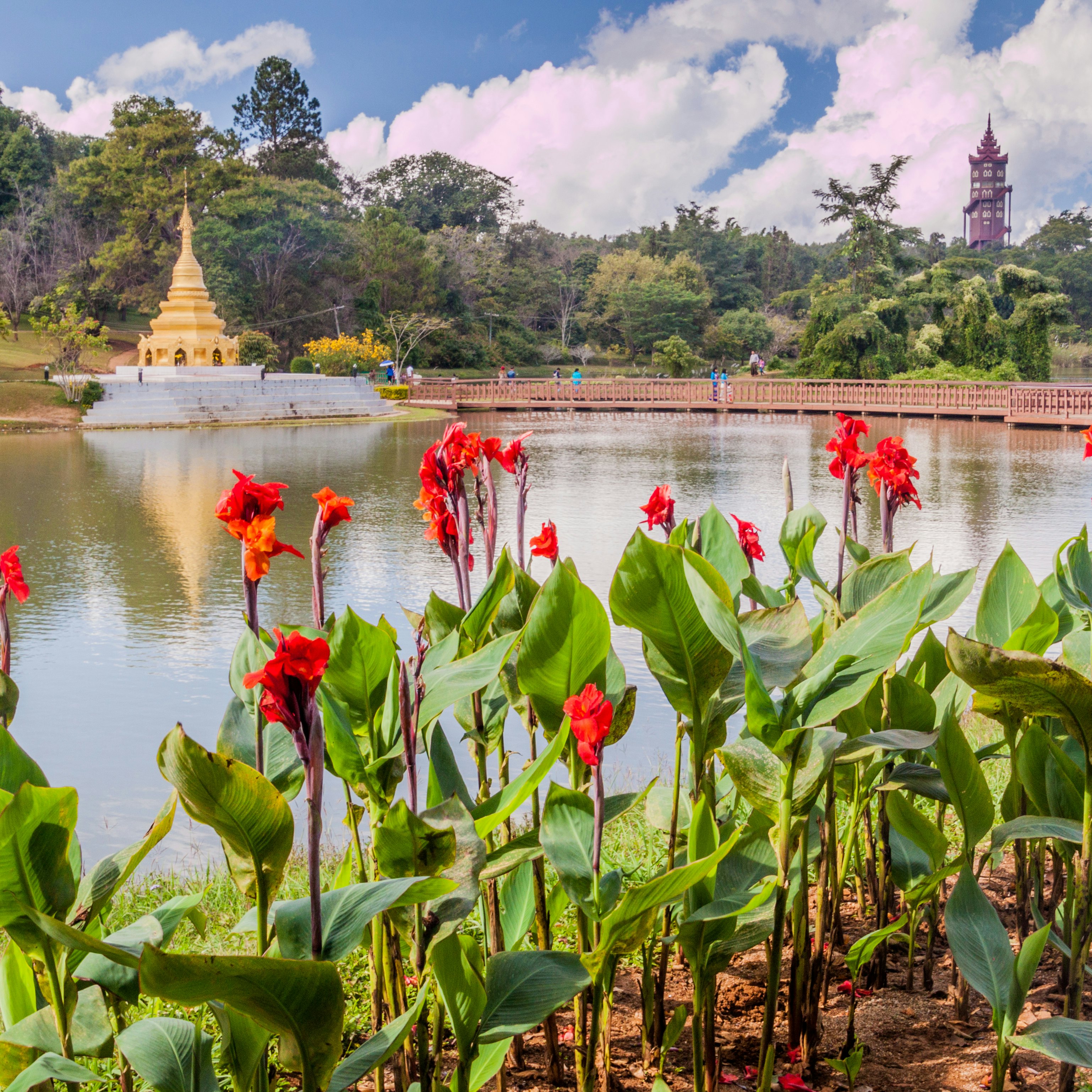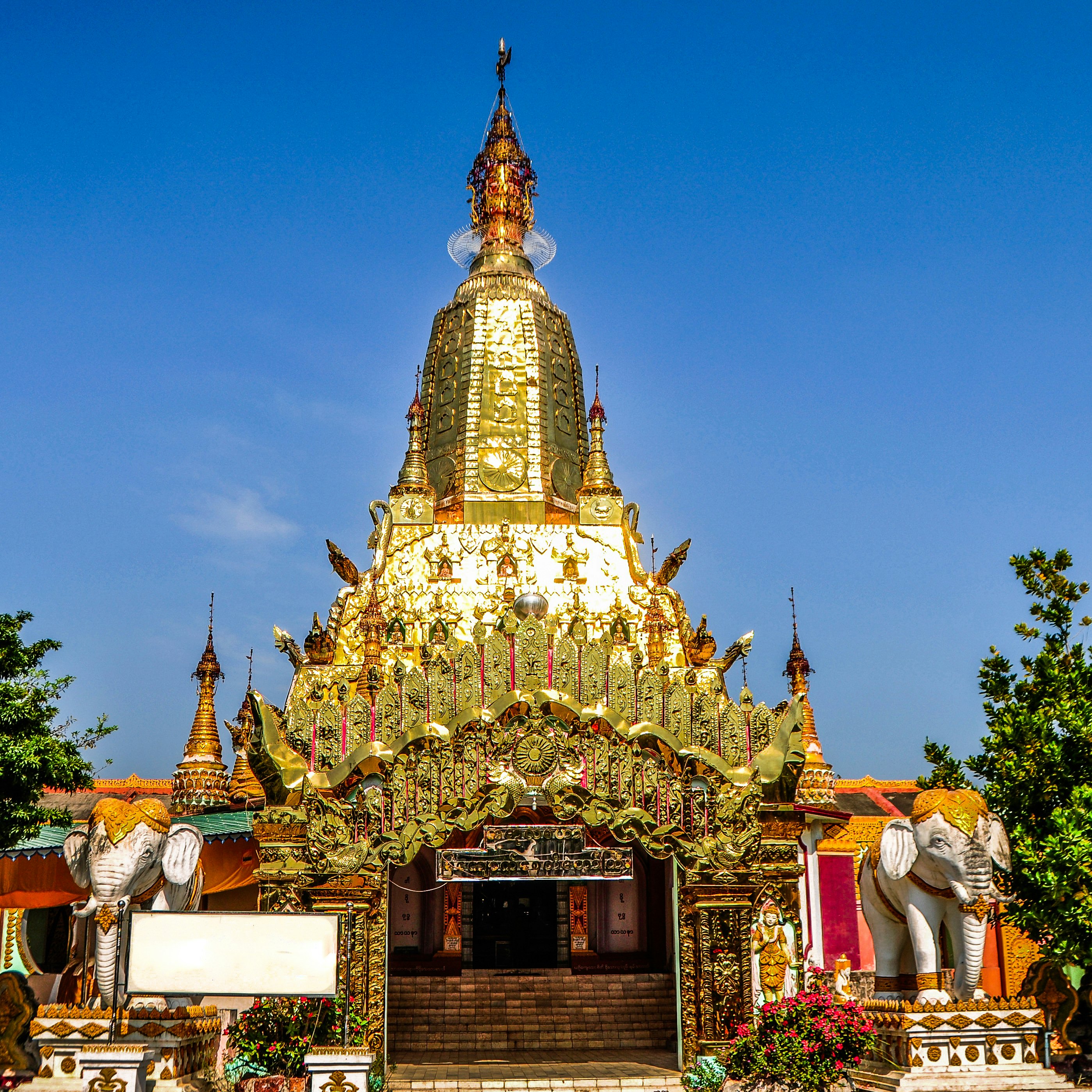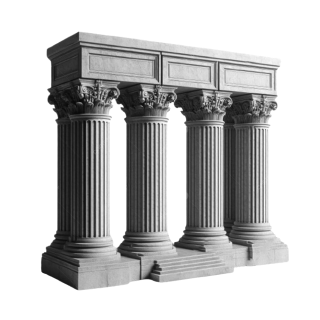Built in 1816 by King Bagyidaw, possibly using materials pilfered from Mingun Paya, this unusually striking pagoda rises in seven wavy, whitewashed terraces representing the seven mountain ranges around Mt Meru (the very topmost stupa), the mountain at the centre of the Buddhist universe. Like the Taj Mahal, this paya was meant as a monument to the tragic death of the king's wife, Queen Hsinbyume, who died in childbirth. The climb to the top is worth it for the views.
Hsinbyume Paya
